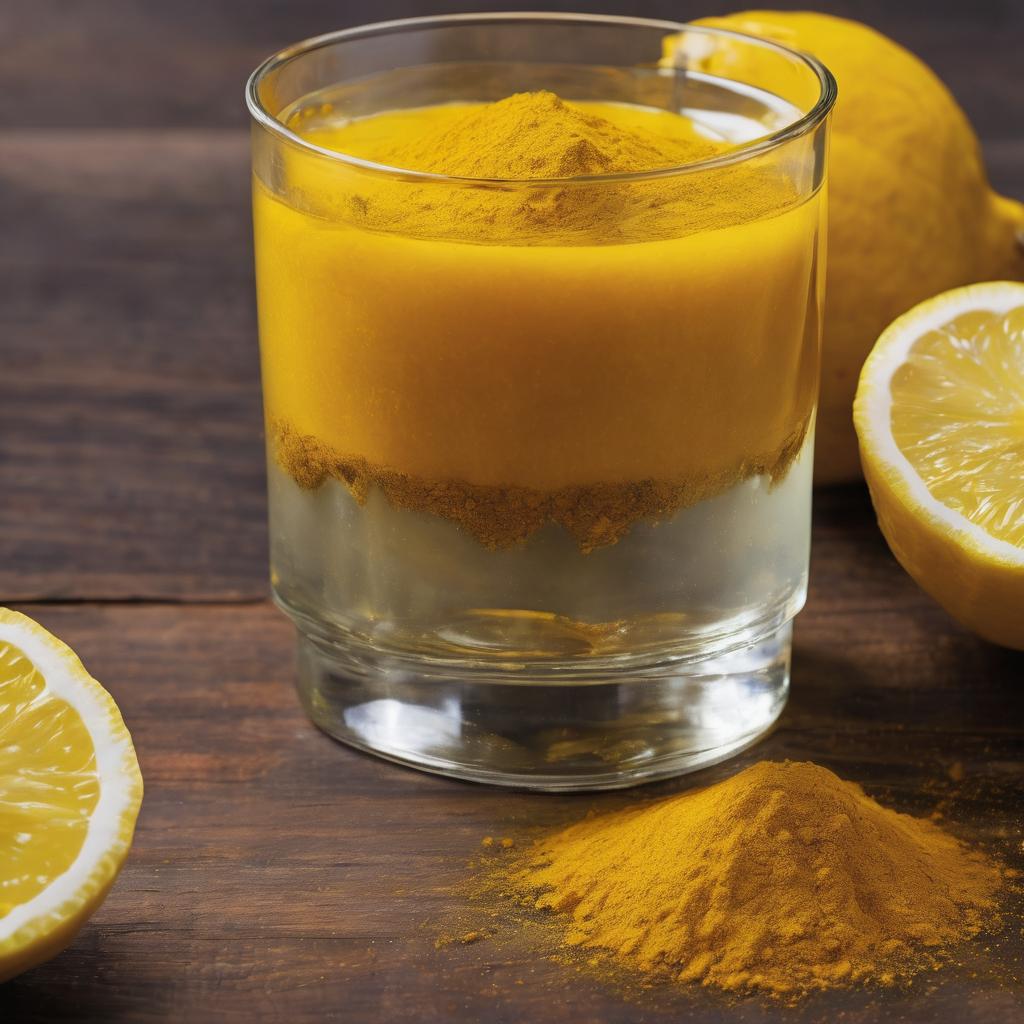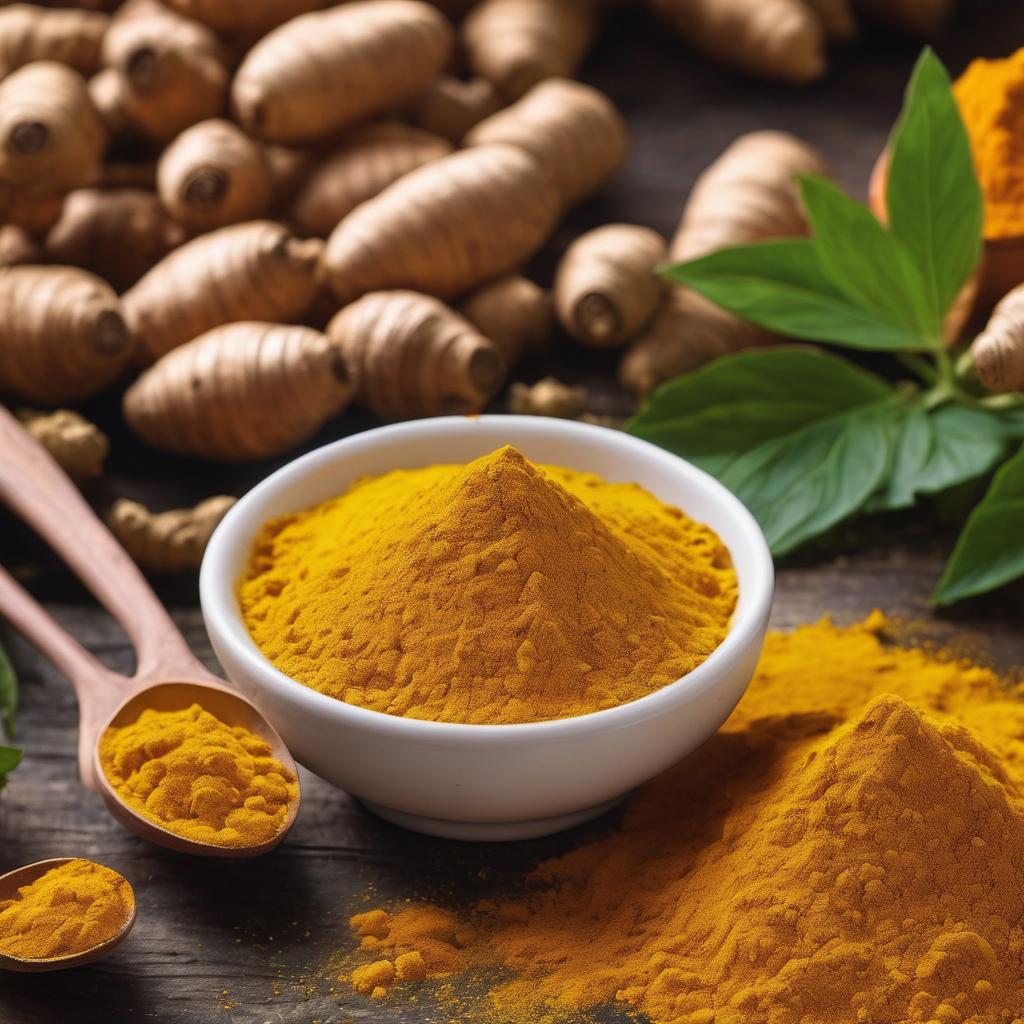
Do you want to naturally boost your liver health? Look no further than turmeric! This golden spice has incredible benefits for your liver. It aids in detoxification, reduces inflammation, and promotes overall well-being. By incorporating turmeric into your diet, you can support your liver’s health and function. In this article, we’ll explore the power of turmeric and provide practical tips on how to incorporate it into your daily routine for optimal liver health.
Key Takeaways
- Turmeric aids in detoxification by enhancing the production of enzymes and providing protection from damage caused by toxins and oxidative stress.
- Turmeric’s anti-inflammatory properties help reduce inflammation and alleviate liver conditions such as fatty liver disease and liver fibrosis.
- Incorporating turmeric into your diet through smoothies, roasted vegetables, soups, and curries can provide antioxidant and anti-inflammatory benefits for liver health.
- In addition to turmeric, maintaining a healthy diet, including liver-friendly herbs and spices, considering liver-friendly supplements, and engaging in regular exercise can also support liver health naturally.
The Importance of Liver Health
Take care of your liver by understanding its importance in maintaining overall health. Your liver plays a crucial role in the body’s function and well-being. It is responsible for filtering toxins and waste from the blood, producing bile for digestion, metabolizing nutrients, and storing vitamins and minerals. Without proper liver function, various health issues can arise.
Common liver diseases, such as fatty liver disease, hepatitis, and cirrhosis, can significantly impact liver function and overall health. Fatty liver disease occurs when fat accumulates in the liver, while hepatitis is inflammation of the liver caused by viral infections. Cirrhosis, on the other hand, is the scarring of the liver tissue, resulting from long-term liver damage. Understanding the importance of liver function can help you make informed choices to maintain a healthy liver and overall well-being.
Understanding Turmeric’s Benefits
To boost your liver health naturally, it is essential to understand the benefits of turmeric. Turmeric, a yellow spice commonly used in Indian cuisine, has been used for centuries in traditional medicine due to its powerful medicinal properties. Here are three key benefits of turmeric:
- Anti-inflammatory properties: Turmeric contains a compound called curcumin, which has been shown to reduce inflammation in the body. Chronic inflammation can contribute to liver damage, so incorporating turmeric into your diet can help support liver health.
- Antioxidant effects: Curcumin is also a potent antioxidant, meaning it helps protect your liver cells from damage caused by free radicals. This can help prevent oxidative stress and improve liver function.
- Liver detoxification: Turmeric has been found to stimulate the production of bile, an important substance that aids in the digestion and elimination of toxins. This promotes the detoxification process in the liver, helping to cleanse and support its overall health.
Incorporating turmeric into your diet is as simple as adding it to your favorite recipes, such as curries, soups, or smoothies. Alternatively, you can also consider turmeric supplements, which provide a concentrated dose of curcumin. Remember to consult with your healthcare provider before starting any new supplement regimen.
Further Reading
Antioxidant Health Effects. (2009, November 24). News-Medical.net, https://www.news-medical.net/health/Antioxidant-Health-Effects.aspx
Can turmeric supplements harm the liver? How can you have this immunity booster safely? (2023). The Indian Express, https://indianexpress.com/article/health-wellness/turmeric-supplements-harm-liver-immunity-booster-8903337
Turmeric’s Role in Liver Detoxification
Incorporating turmeric into your diet can support your liver’s detoxification process. Turmeric has been found to have a positive effect on liver enzymes, which are responsible for breaking down toxins in the body. Studies have shown that the active compound in turmeric, called curcumin, can help enhance the production of these enzymes, thus aiding in liver detoxification.
Furthermore, turmeric has been found to have a beneficial impact on liver function as well. It helps protect the liver from damage caused by toxins and oxidative stress. Turmeric’s anti-inflammatory properties also play a role in supporting liver health by reducing inflammation in the liver and preventing the development of liver diseases. By adding turmeric to your diet, you can help optimize your liver’s natural detoxification process and promote overall liver health.
Further Reading
Turmeric Information | Mount Sinai – New York. (n.d.). Mount Sinai Health System, https://www.mountsinai.org/health-library/herb/turmeric
https://ukhsa.blog.gov.uk/. (n.d.). Liver disease: a preventable killer of young adults – UK Health Security Agency. https://ukhsa.blog.gov.uk/2014/09/29/liver-disease-a-preventable-killer-of-young-adults/
Turmeric’s Anti-inflammatory Properties for Liver Health
Reducing inflammation in your liver is crucial for promoting liver health, and turmeric’s anti-inflammatory properties can help achieve this. Turmeric contains a compound called curcumin, which has been shown to have potent anti-inflammatory effects. Here are three ways in which turmeric’s anti-inflammatory properties can benefit your liver health:
- Turmeric’s antioxidant effects: Inflammation in the liver is often accompanied by oxidative stress, which can damage liver cells. Turmeric’s antioxidant properties help neutralize harmful free radicals and protect liver cells from oxidative damage.
- Reduction of inflammation: Curcumin has been found to inhibit the production of inflammatory molecules in the liver, effectively reducing inflammation. This can help alleviate liver conditions such as non-alcoholic fatty liver disease and liver fibrosis.
- Turmeric supplements for liver health: Taking turmeric supplements can provide a concentrated dose of curcumin, making it easier to incorporate the anti-inflammatory benefits of turmeric into your daily routine. However, it’s important to consult with a healthcare professional before starting any new supplements to ensure they are safe and suitable for you.
Further Reading
Dehzad et al., 2023, Effects of curcumin/turmeric supplementation on liver function in adults: A GRADE-assessed systematic review and dose-response meta-analysis of randomized controlled trials. Complementary Therapies in Medicine, 74, https://doi.org/10.1016/j.ctim.2023.102952
10 Proven Health Benefits of Turmeric and Curcumin, 2021, Healthline, https://www.healthline.com/nutrition/top-10-evidence-based-health-benefits-of-turmeric#:~:text=Turmeric%20%E2%80%94%20and%20especially%20its%20most
How to Incorporate Turmeric Into Your Diet
You can easily incorporate turmeric into your diet by frequently adding it to your favorite dishes and drinks. Turmeric is a versatile spice that can enhance the flavor and nutritional value of many recipes. Here are some simple ways to incorporate turmeric into your diet:
- Add a teaspoon of turmeric to your morning smoothie for an extra antioxidant boost.
- Sprinkle turmeric on roasted vegetables or baked chicken for a vibrant and flavorful twist.
- Use turmeric in soups, stews, and curries for its earthy and warm flavor.
In addition to using turmeric in your cooking, you can also consider taking turmeric supplements to reap its health benefits. However, it’s important to consult with your healthcare provider before starting any new supplements to ensure they are safe for you.
Other Natural Ways to Support Liver Health

To further support your liver health, consider making dietary changes and incorporating regular exercise into your routine. A healthy diet rich in fruits, vegetables, whole grains, and lean proteins can provide essential nutrients and antioxidants that promote liver function. Additionally, engaging in regular exercise can help improve blood flow to the liver and support its detoxification processes.
Dietary Changes for Liver
To naturally support liver health, it is important to incorporate dietary changes that include other natural ways. Here are some practical tips to help you maintain a healthy liver:
- Increase your intake of fruits and vegetables: These are rich in antioxidants and fiber, which can help protect your liver from damage and promote its overall health. Aim for a variety of colorful options to ensure a wide range of nutrients.
- Include liver-friendly herbs and spices: Turmeric, dandelion root, and milk thistle are known for their liver-protective properties. Consider adding these herbs and spices to your meals or incorporating them into healthy recipes.
- Consider liver-friendly supplements: Certain supplements, such as milk thistle extract or N-acetyl cysteine (NAC), may help support liver health. However, it’s important to consult with a healthcare professional before adding any supplements to your routine.
Exercise and Liver Health
One effective way to support liver health naturally is by incorporating regular exercise into your routine. Exercise not only helps with weight loss, but it also plays a crucial role in maintaining liver health. Studies have shown that physical activity can reduce the risk of developing fatty liver disease, a condition commonly associated with obesity and weight gain. Regular exercise helps to burn excess fat, which in turn reduces the accumulation of fat in the liver.
Additionally, exercise can help improve insulin sensitivity, which is important for regulating blood sugar levels and preventing liver damage. It is important to note that exercise alone cannot counteract the negative effects of excessive alcohol consumption on liver health. If you consume alcohol, it is essential to do so in moderation and seek professional help if you have an alcohol-related problem.
Frequently Asked Questions
Can turmeric prevent liver diseases?
Turmeric’s potential in preventing liver diseases lies in its anti-inflammatory and antioxidant properties. While it is a valuable component of a holistic approach to liver health, it’s essential to note that no single ingredient can guarantee disease prevention. Maintaining a healthy lifestyle, including a balanced diet, regular exercise, and avoiding excessive alcohol consumption, remains crucial for overall liver well-being.
Can turmeric be consumed in food for liver benefits, or is supplementation necessary?
Turmeric can be incorporated into the diet through culinary means, adding it to dishes like curries or brewing turmeric tea. While dietary inclusion is beneficial, some individuals opt for supplements for a more concentrated dose of curcumin. The key lies in choosing high-quality products and finding a balance between dietary sources and supplements based on individual preferences and needs.
Is turmeric beneficial for liver detoxification?
Absolutely. Turmeric enhances liver detoxification processes by stimulating the production of phase II detoxification enzymes. These enzymes play a pivotal role in breaking down and eliminating toxins from the body. By supporting these essential functions, turmeric aids in the liver’s natural detoxification pathways, promoting overall liver health.
Are there specific populations who should avoid turmeric for liver health?
Pregnant and breastfeeding women should exercise caution and seek guidance from healthcare providers before incorporating turmeric supplements due to limited research on its effects in these populations. Additionally, individuals with specific medical conditions, such as bile duct obstruction, should consult with a healthcare professional before using turmeric to avoid potential complications.
Can turmeric be used as a sole remedy for liver issues, or should it be part of a broader approach?
Turmeric is a valuable component in promoting liver health, but it should not be viewed as a sole remedy. Optimal liver function requires a comprehensive approach. Incorporating turmeric into the regimen should be complemented by a balanced diet, regular exercise, adequate hydration, and the avoidance of excessive alcohol and processed foods. This multifaceted approach ensures a holistic and sustainable strategy for maintaining optimal liver health.
Conclusion
Boosting liver health naturally with turmeric is a practical and evidence-based approach. By incorporating turmeric into your diet, you can harness its powerful detoxification and anti-inflammatory properties, supporting the overall health of your liver. Remember to enjoy the process of experimenting with new recipes and discovering creative ways to incorporate this beneficial spice into your meals. With turmeric, you can take proactive steps towards maintaining a healthy liver and enjoying the numerous health benefits it offers.


